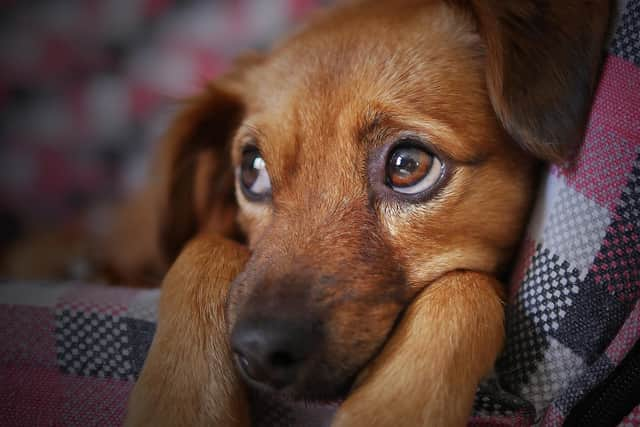Dog 'looked like something from Gremlins' - concerns over unlicensed dog breeding raised in South Tyneside
and live on Freeview channel 276
South Tyneside Council monitors a range of animal activity through its environmental health service, from the selling of animals as pets and animal boarding to horse hire and the keeping or training of animals for exhibition.
The local authority has powers to grant and review licences, as well as taking enforcement action against those carrying out unlicensed activity.
Advertisement
Hide AdAdvertisement
Hide AdIn a recent update to councillors, council officers said dog breeding continues to be a popular activity in South Tyneside, with around five licences issued in 2022.


The report, presented to the local authority’s Licensing and Regulatory Committee on January 13, said dog breeding is also the activity where the “most concerns of poor practice” are raised.
Since January 1, 2022, the council’s environmental health service has received seven reports of alleged dog breeding, with the quality of evidence varying from case to case and “determining the effectiveness” of investigations.
Council licensing bosses stressed dog breeding activities are monitored with a risk-based inspection programme, as well as a publicly-displayed star rating for each business issued by the council.
Advertisement
Hide AdAdvertisement
Hide AdHowever one councillor suggested that the “lucrative” nature of the pet industry could create “traps” for residents looking to purchase an animal.
Councillor Doreen Purvis said: “At one time pet ownership wasn’t anything near what it is today.
“It’s become a whole new lucrative industry where people think they can make a few bob either breeding animals or looking after them.
“I know a neighbour of mine bought online, which is very very dodgy, and thought she was buying a ‘Jackawawa’, a cross between a Jack Russell and a Chihuahua.
Advertisement
Hide AdAdvertisement
Hide Ad“I don’t know what had happened in the interim but it ended up looking like something off Gremlins with a severe overbite which required extensive vet skills to try and mitigate.
“There are traps for the unwary out there, as I say, buying an animal online you should always go and see it”.
Cllr Purvis, Whiteleas ward member, added animal activity was a “bit of a minefield” and that there had been instances where people had attempted to use council properties for such businesses.
Environmental health officers said there had been a large increase in dog breeding since the Covid-19 pandemic and that the council relies on “good quality intelligence” to find unlicensed activity.
Advertisement
Hide AdAdvertisement
Hide AdCouncillors also heard that licensing checks aim to prevent issues around inbreeding and that unlicensed dog breeding operations are offered the opportunity to comply with licensing requirements, unless there is a “significant welfare concern”.
According to South Tyneside Council’s website, a new dog breeding licence or renewal costs £158, plus a vet fee.
After an application is made, the site of the activity is inspected by the council and when required, a vet, as well as an ‘animal activity star rating’ being issued.
Low-risk premises can be awarded up to five stars and higher-risk premises can be awarded up to four stars.
Public concerns about animal activity should be directed towards South Tyneside Council.
The council can be contacted via email at [email protected] or via telephone 0191 424 7695.
More information about animal welfare licensing can be found here: https://www.southtyneside.gov.uk/article/1763/Animal-welfare-licensing